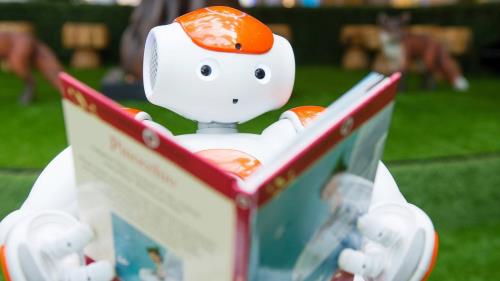Are workers only human? Here's what you need to know if your boss expects you to never make a mistake
9 October 2019

There has been a lot of media attention on the performance of referees in the Rugby World Cup.
In fact, after several contentious calls in early games of the tournament, World Rugby issued a statement acknowledging that the performances of the match officials "were not consistently of the standards set by World Rugby and themselves".
But at what point is the expected standard that of perfection?
Keen-eyed rugby watchers look out for referee blunders from a wide assortment of camera angles. Passionate supporters will be watching every move looking for anything that disadvantages their preferred team. Elsewhere there will be equally passionate watchers who will be looking out for the exact same things but from the perspective of the other team.
If mistakes are caught, watchers can capture them instantly and publish the error across social media within seconds. The Rugby World Cup has not even reached the knockout stage but already we have seen dangerous tackles that would normally be called as yellow card, or even red card, offences.
Some fans may have sympathy for the referees. While it is a referee's job to adjudicate the game, they are only human, and have to rely on their judgement and the assistance of television match officials (TMOs) to make the calls they think are correct.
Other readers may disagree. These match officials are refereeing top international rugby and perhaps the expected standard of performance needs to be close to perfection, given the high stakes and the technology available.
What if your employer thought the same of you and your job performance? The law is clear that an employer must act fairly and reasonably and while it can set the standards it expects of an employee's performance, these standards must be reasonable.
In a 1990s case involving Telecom, the Employment Court set out clear standards for responding to poor performance. Requirements include informing the employee, and providing objective standards and reasonable time to attain them.
Employers also have to consider all possible causes and remedial steps to assist the employee to improve.
It would be unreasonable to expect an office worker to never make a typo in an email, or a data entry clerk to never hit a wrong key. In fact, many workplaces have checks or authorisations on certain processes because they acknowledge that employees are human and mistakes happen.
Alternatively, many employers seek to avoid the risk of human error altogether by turning to automated processes performed by algorithms rather than a human employee.
For instance, complicated payroll calculations are now done instantly with specialised software, and hours that were previously spent individually addressing letters can now be done instantly with a mail merge.
On the rugby front, there has been a number of technological advances that have taken the pressure of referees. Hawk-Eye technology takes away the judgement about successful kicks at goal, and the referee can consult TMOs who can zoom, pause and slow down footage of the play to assist with making calls.
Similar, and in some cases more advanced, technology has been applied to many other sports. Cricket and tennis, for instance, make extensive use of Hawk-Eye technology.
In other industries, some employers have gone even further than providing technical assistance to their human employees by developing digital employees.
Digital employees are the product of artificial intelligence software which learns a set of behaviours that develop and adapt over time in response to the tasks provided.
Such software goes beyond pre-recorded responses to specific questions, but actually understands and processes language, senses and reacts to human emotion and learns and builds workflows.
Digital employees have made their way to New Zealand. Noel Leeming recently announced the introduction of Nola, a digital assistant who provides customer service at its Newmarket, Auckland store.
Several months ago, ANZ bank began trialing a digital assistant called Jamie who can provide answers to general banking queries. Just last week, a small technology startup company developed New Zealand's first digital barista, Bella, who can chat with you and take your coffee order which is then transmitted to a coffee machine without you needing to touch a button.In the absence of the development of a digital match official, is it reasonable to expect that Rugby World Cup referees are capable of avoiding any human error?
Or is World Cup level refereeing of such high stakes that it is reasonable to expect near perfection, just as many people would expect near-perfection for highly skilled employees carrying out large financial transactions, or a senior surgeon performing a dangerous surgery?
Or perhaps it is only a matter of time before referees become another casualty of AI advancement, and human referees on the fields of world cup sport is a thing of the past.


